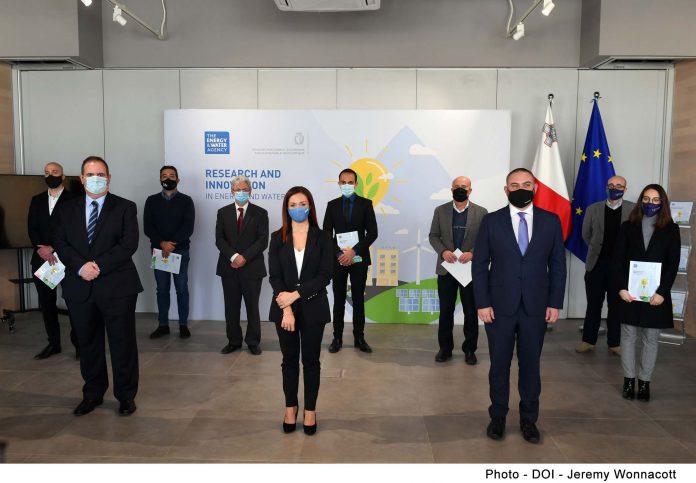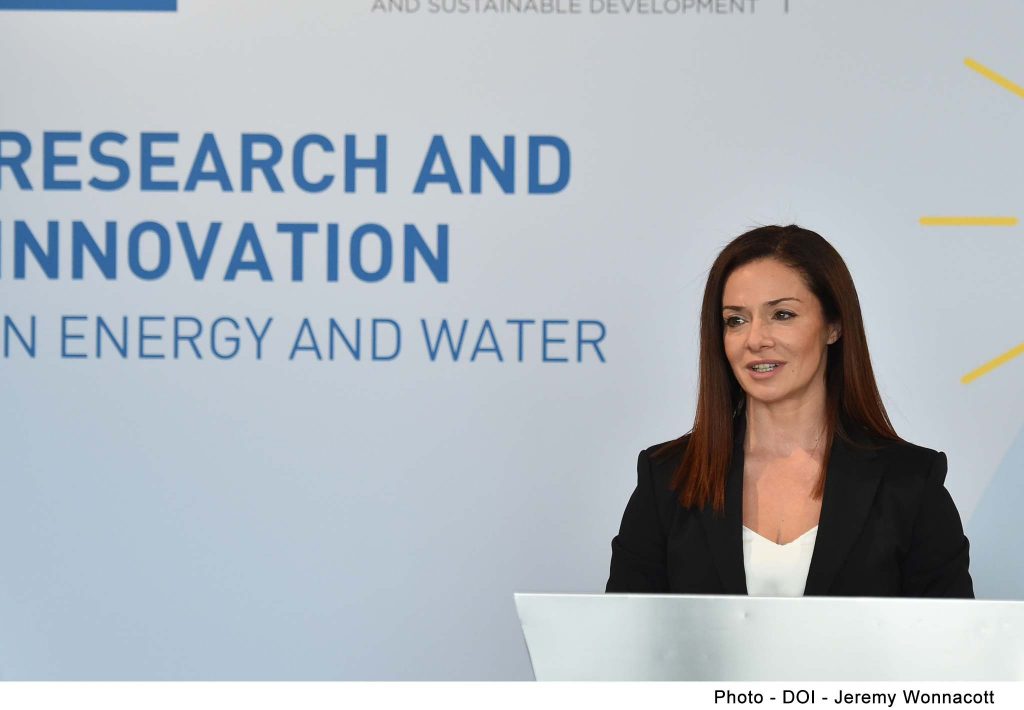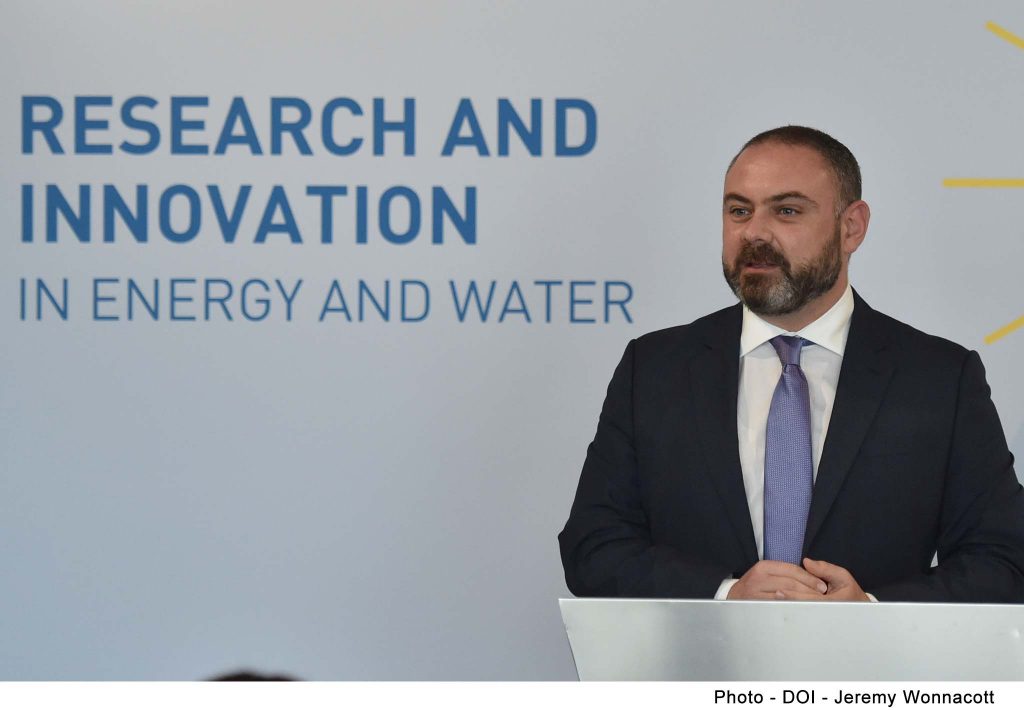
Five projects will benefit from a total of €558,000 for research and innovation in the fields of energy and water, thanks to funds allocated by the Energy and Water Agency. These funds will be helping researchers focus on various sectors, including improvements in water and energy efficiency and production, as well as the integration of renewable resources into the grid.
The projects which qualified for this aid were announced during a news conference by Ministers Miriam Dalli and Owen Bonnici, and the Agency’s Chief Executive Officer Manuel Sapiano.
These projects, which see the involvement of a number of departments from the University of Malta together with the public sector, will be focusing their work on aspects of research and innovation that will eventually lead to the strengthening of the energy and water sectors. This is being done within the framework of the National Strategy for Research in the Energy and Water Sectors.
“We need to incentivize more research and innovation, especially in the fields of energy and water, where we are looking at innovative and technologically advanced solutions. To move further towards renewable energy, towards storing that energy for when we need it and towards increasing efficiency, we need innovative solutions,” said Minister Dalli.

Dr Dalli emphasised the importance of incentivizing solutions which reflect the realities of a small island like Malta, so that the nation can move towards the goal of carbon neutrality while ensuring that consumers continue to enjoy a secure supply and affordable prices.
“Through research, innovative solutions need to be developed for current and future challenges, particularly those specific to Malta. The government is convinced that investing in research is the key to a strong and competitive industry”, said Minister Dalli.
The minister concluded that together we can contribute to strengthening a sustainable economy, especially after the impact of COVID-19.
Research and Innovation Minister Owen Bonnici argued that the energy challenge in the twenty-first century requires governments, researchers, the community, and private investors to collaborate on energy planning, rather than just providing energy services.

“The role of research is very important in energy sustainability and I am pleased to note the involvement of the University of Malta in these projects. This is a clear example of how the academic world can be closer to the community. Research in the energy sector has an effect on everyone since we are all consumers”, observed Minister Bonnici.
He stated his commitment, as minister responsible for research and innovation, to provide all assistance for the public to reap the benefits of research. “To meet the EU’s targets, energy efficiency must be increased. These projects are all an effective way of achieving these goals”, said Dr Bonnici.
Chief Executive of the Energy and Water Agency Manuel Sapiano explained the importance of joint work between the academy, industry and the public sector to develop policies which are based on research and innovation.
The selected projects will be focusing on technical and innovative aspects in various sectors, including the storage of electrical energy in batteries and other forms of storage, higher efficiency in the operation of solar panels, improvement in the taste of tap water as well as monitoring of groundwater and soil content.









